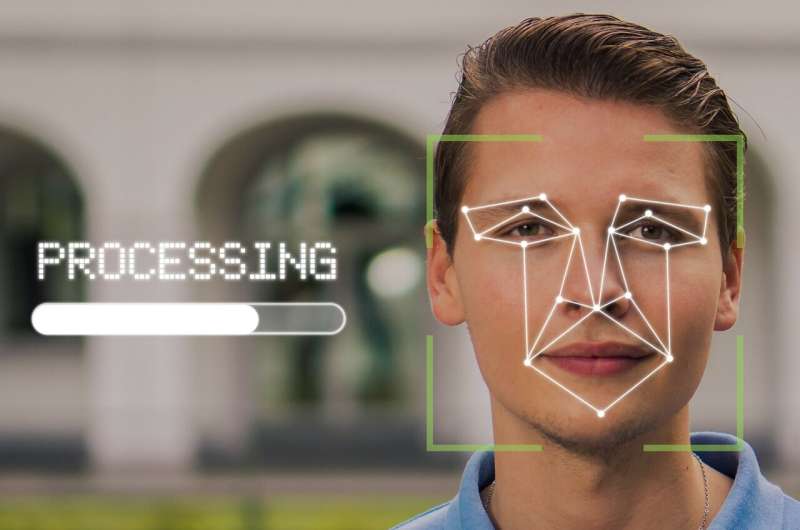This article has been reviewed according to Science X's editorial process and policies. Editors have highlighted the following attributes while ensuring the content's credibility:
fact-checked
trusted source
proofread
New survey finds only a quarter of Australians understand facial recognition technology despite its widespread use

Automated facial recognition is poised to become increasingly widespread in Australia, with the technology already in widespread use by retail outlets, concert venues, sports stadiums and casinos. Despite this, a new survey has found that the public is woefully ill-informed about the technology.
Researchers at Monash University and the Australian National University have found that almost three-quarters of Australians say they know little about automated facial recognition technology.
The report, "Australian public attitudes to facial recognition technology," also found only one in 20 people felt they knew "a lot" about the technology, which is poised to play a central role in the country's new Digital ID system.
Chief Investigator Professor Mark Andrejevic said the findings demonstrate the need to raise the level of public awareness and understanding of automated facial recognition.
"The technology is more widespread than many realize—and it's poised to spread rapidly. In the future, it could be as common as CCTV. This raises real privacy issues," Professor Andrejevic said.
"People need a better understanding of how, why and where facial recognition systems operate, how their personal data will be processed, used and stored, what kinds of risks they might confront from participating, and what mechanisms hold the technology accountable."
Researchers conducted a public opinion survey with 2,006 Australian adults between April and May 2024 to provide a comprehensive picture of the Australian public's current understandings, attitudes and opinions relating to the impact of facial recognition technology on society.
The report also found that notification and consent was crucial for Australians, with 90% saying they wanted to know when and where the technology was being used on them, and they wanted to be provided with the opportunity to consent to its use.
Respondents also supported the use of the technology to help identify the bodies of victims of disaster or war (80%). A majority of respondents also supported its use as a means of age verification for accessing online gambling (61%) and pornography (51%).
There was much less support for the use of the technology for non-law-enforcement purposes. For instance, the majority of respondents did not support its use in the workplace for tracking the location and productivity of workers or in the retail sector for tracking and targeting shoppers (supported by only 16% and 15% respectively).
With industry and policymakers continuing to develop, implement and manage facial recognition technology, concerns remain over the potential misuse of the technology by public authorities and private corporations.
Professor Andrejevic suggested the ability to recognize individuals automatically at a distance raises human rights issues such as the right to privacy, and the freedoms of assembly, expression and movement.
"As we face the transition to more widespread uses of the technology, understanding the level of public awareness and concern about the technology is crucial to ensure that it is deployed in ways that are in accordance with Australian values and commitments."
More information: Andrejevic M, Selwyn N, Gu X, Smith G, O'Malley P, O'Neill C Australian Public Attitudes to Facial Recognition Technology. (2024) Monash University. Clayton.

















